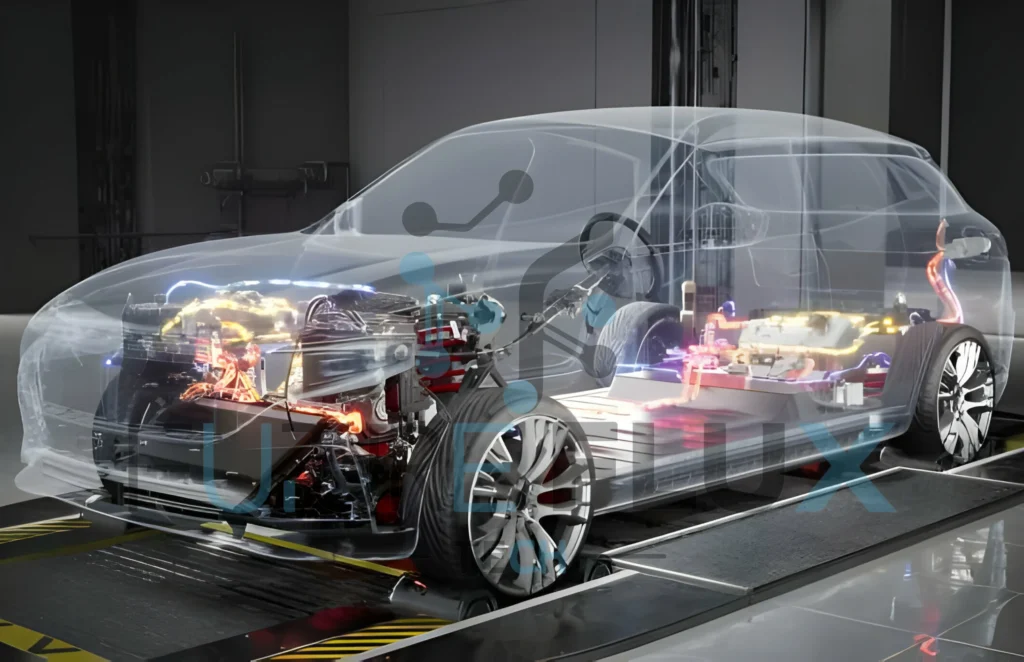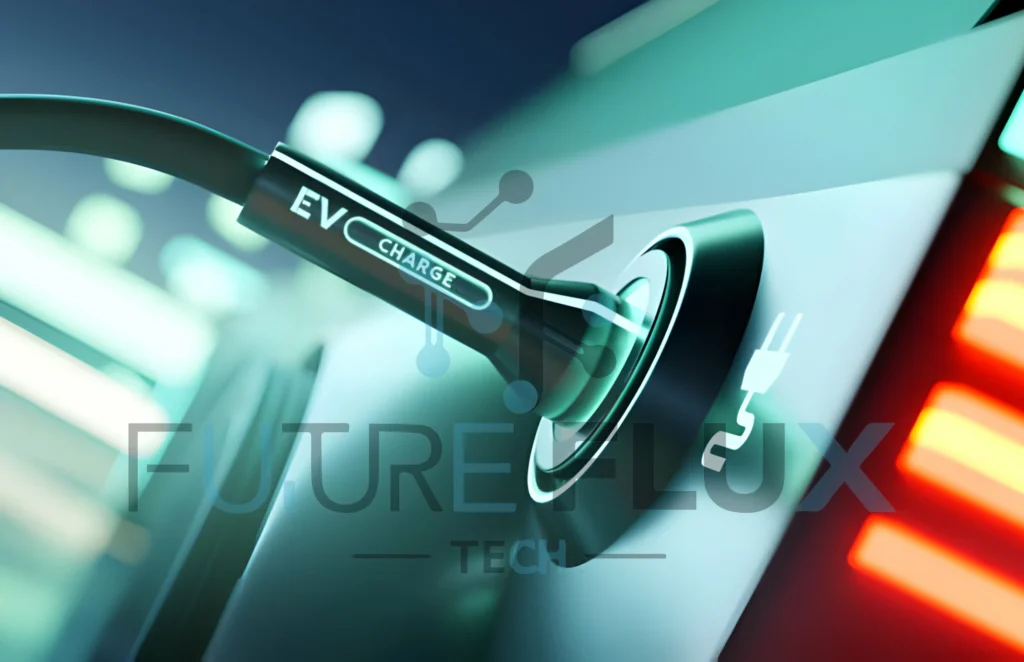No one can deny that electric cars are getting increasingly popular at a very high speed. However, many customers who want to switch from combustion engine cars to electric cars have some doubts and concerns. Many of these doubts or concerns are centered around relying on batteries, mostly about the electric car battery lifespan. The most common question asked by consumers who want to switch is, ‘How long does an electric car battery last while driving?’ If you are one of those consumers, this article is for you. This article will clear all the doubts about electric car batteries.
The Question: For How Long Does An Electric Car Battery Last While Driving?
This question must be answered in more than one sentence. To get the answer, you need to understand plenty of things first. This is because multiple factors are responsible for the lifetime of electric car batteries. Hence, please keep reading to know, “How long does an electric car battery last while driving?”.
The Basics of EV Batteries

As we said, to know how long does an electric car battery last while driving? You need to understand many things; the basics of car batteries are among them. Electric cars use rechargeable lithium-ion batteries to store energy. Lithium-ion batteries are more energy-dense than lead-acid batteries found in gas cars. Also, lithium-ion batteries are better at storing energy than rechargeable nickel-cadmium batteries used in hybrid cars.
The high energy density means it can store more energy and generate more power for its size. This factor makes it ideal for an electric vehicle.
How to Do EV Batteries Degrade?
Generally, battery degradation in electric vehicles happens due to temperature, cycles, and times. Operating and storage temperatures majorly affect the longevity of electric vehicle batteries. Typically, warmer climates adversely affect the EV battery life expectancy. Because the battery goes through charge cycles, drains while driving, and again charges while plugged in, this gradually loses the maximum potential of the battery. However, it does not mean that not charging or using your battery will extend the life of your electric vehicle battery. Calendar aging is the battery loss over a lifetime.
Besides, there are many other factors affecting electric car battery life, but some of them are in the control of electric vehicle owners, including:
Avoid regularly using DC fast charging stations
Avoid storing the electric vehicle battery at 100% charge
Maintaining the specific charge level of your EV battery
Asses exposure to hot temperatures
The Duration of an Electric Car Battery

So, how long does an electric car battery last while driving? Luckily for customers, the government made it mandatory for car manufacturers to make batteries with a warranty of 8 years or 100,000 miles. As electric vehicle battery packs are getting cheaper for car manufacturers, firms can make bigger batteries with more energy potential, ultimately increasing their mile range.
Furthermore, improvements in technology can lessen the battery degradation in electric vehicles. This means that the maximum potential will remain the same with improvement over time, just like the new battery. Plus, lithium-ion batteries are made up of multiple individual cells. Therefore, you won’t need to replace your whole battery every time. Instead, you can save a lot of cash by replacing dead cells. Hopefully, now you know how long does an electric car battery last while driving.
Ways to Extend Electric Vehicle Battery Life
Although EV battery durability is good, there are some ways electric vehicle drivers can further increase the lifespan of EV batteries. You can follow these tips to enhance the life of your battery.
1- Follow the Guidelines of the EV Manufacturer
Many people need to learn the importance of the guidelines given by the manufacturers. Following the specific guidelines of electric vehicle manufacturers is crucial for the best possible EV battery performance. It is because it will help you keep your software updated. Also, there needs to be a general guide for all EV batteries. Each manufacturer uses different battery chemistries and cooling methodologies; hence, each has rules for charging instructions and optimal operations.
2- Maintain Moderate Temperatures
Electric vehicles with liquid-cooled batteries have better battery life retention. This is because they maintain lower functioning temperatures. Generally, operating and storing your electric vehicle in a moderate climate is an efficient way to extend EV battery life. If you reside in an area with a warmer climate, park your car in a well-covered garage or shade because the CSR spends most of its lifetime parked.
3- Minimize Rapid Charging
If you occasionally charge your EV battery utilizing DCRC (Direct Current Rapid Charging), it is not a cause for concern. However, using this charging method frequently will likely cause more battery degradation later in life. Fortunately, Electric Vehicle Connect offers various charging stations to ensure several efficient charging solutions for your electric vehicle. Also, frequent usage of electric vehicles results in battery degradation. However, this is not true; be bold and use your electric vehicle frequently.
The Second Life of EV Batteries

The good news for eco-conscious customers is that the EV battery still works for a sustainable purpose even after it leaves your EV. The EV batteries lose efficiency in powering a car; meanwhile, these robust batteries retain enough life to connect with solar. After that, these batteries can serve as a secondary energy source for your home.
For this reason, some manufacturers even buy back or collect old batteries to power other objects sustainably, like sports arenas. If you are eco-conscious, you can feel relaxed knowing that the sustainability of your electric vehicle’s power continues even after leaving your vehicle.
Battery Longevity: Electric vs ICE Vehicles
The Electric vehicle battery warranty (8 years or 100,000) far exceeds the average ICE vehicle drivetrain with a warranty of 5 years or 60,000 miles. The average lifespan mileage of an ICE car is around 133,000 miles. On the other hand, experts estimate that the average electric vehicle battery will stay for about 200,000 miles.
Plus, some of the manufacturers claimed way more than that. The even better news is that Tesla has eyes on a million-mile battery. Also, it argues that they are still pursuing this goal. On average, electric vehicle batteries only degrade at 2.3% of maximum capacity annually. Hence, with adequate care, you can expect your electric vehicle to go as long as or even longer than the ICE drivetrain component.
Conclusion
After reading this article, you will know How long do EV batteries last. If you take care of the things we mentioned, follow the manufacturer’s guide, keep your electric vehicle in cooler temperatures, avoid fast charging frequently, etc. By doing these, you can increase your EV battery life even more.
The cost of electric vehicle batteries continues to decrease, with traveling more miles on a single charge and retaining a longer life span. Furthermore, experts suggest that electric vehicle batteries surpass the longevity of ICE components, and the technology gets better every year. As a result, it will be helpful in extending EV battery life. Plus, it can even serve you sustainably after its life from powering your electric vehicle.
Learn how you can integrate EV charging into business strategy and more!
I’m Waqas, an electric vehicle enthusiast and tech writer with over 6 years of experience covering the EV industry. I write in-depth articles, comparisons, and reviews to help readers understand the fast-evolving world of electric mobility. From battery technology to EV launches and charging trends, I aim to make complex EV topics simple, engaging, and informative for everyday drivers and curious readers alike.





